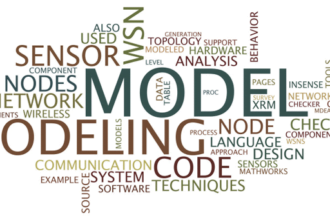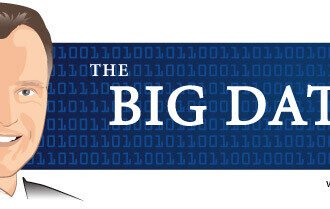Business professional of all levels have asked me over the years what is it that I should know that my Data Science department may not be telling me. To be candid, many Data Scientist operate in fear wondering what they should be doing as it relates to the business. In my judgment the below questions address both parties with the common goal of a win-win for the organization – helping Data Scientist support their organization as they should and business professionals becoming more informed with each analysis.
Business professional of all levels have asked me over the years what is it that I should know that my Data Science department may not be telling me. To be candid, many Data Scientist operate in fear wondering what they should be doing as it relates to the business. In my judgment the below questions address both parties with the common goal of a win-win for the organization – helping Data Scientist support their organization as they should and business professionals becoming more informed with each analysis.
What problem are we trying to solve?
It is important to be able to answer this question in the form of a sentence. Remember that the business end-user most likely does not use common terms like CV, logistic regression, or error-based learning in their everyday business routine. It helps no one for a Data Scientist to hide behind fancy terms and not move the organization along. I can assure that translating well the Data Science jargon into something digestible for the business professional will create many allies. After all, a Data Scientist should have the primary skill of being able to transform complex ideas and make them plain.
Does the approach make sense?
In truth this may be the single best question that benefits the Data Scientist even though it is asked to help the business professional. Learning to write out an effective analytic plan can have profound meaning. Writing is a discipline which should be embraced by the Data Scientist. It allows the Data Scientist to synthesize their thoughts. Although we live in a day and time where technology is at the center of everything we do – we should remember technology, Data Science, or statistical computing are not replacements for thinking.
Does the answer make sense?
Can you make sense out of what you have found; do you know how to explain the answer you have received. Your organization is counting on you to be able to be the translation piece between the computer output and their business needs. Remember computers simply do what they are told. As a Data Scientist we need to be sure we told it to do the right thing. Validate the instructions you gave it were the ones you intended to give to it. Be scientific in your approach document your assumptions and be sure you have not introduced bias into your work.
Is it a finding or a mistake?
Not everything is a Eureka! moment. So you should make skepticism a discipline as a Data Scientist. One should always be skeptical of surprise findings. Experience should tell you that if it seems wrong, then it probably is wrong. Do not blindly accept the conclusion your data presents to you. Thinking has no substitute – even in Data Science. Make absolutely sure you understand and can clearly explain why things are the way they are – whether a finding or a mistake.
Does the analysis address the original intent?
Unless you are surrounded by other Data Scientists in your organization, this question requires accountability to ones-self. You should be honest with yourself and be transparent with the fact that you may or may not be aligning the answer with the expectations of the business. It may be obvious, but it is important to speak the truth. However, if you analysis is essentially “your baby is ugly” sort of analysis, be sure you are 100% confident in your analysis. In this situation, additional analysis is more important than less. Giving an analysis that does not reflect well on the business that is not well substantiated may very well be your last.
Is the story complete?
We would all agree that the best speakers, writers, and leaders are all good storytellers – it is no different for the Data Scientist. While storytelling is not the only way to engage people with your ideas, it is certainly a critical part of the Data Science recipe. Do your best to tell an actionable story. Resist the urge to rely on your business audience to stitch the pieces of your data story together. After all your analysis is too wonderful to leave up to wild interpretations. Take time to identify potential holes in your story and fill them to avoid surprises. Grammar, spelling and graphics matter; your audience will lose confidence in your analysis if your results look sloppy.
Where would we head next?
As Data Scientist we should realize that no analysis is truly ever finished – we simply run out of resources. It is worth the effort for a Data Scientist to understand and be able to explain what additional measures could be taken if the business was able to provide additional resources. In simple terms, the business professionals you work with at the very least will need to have the information so that they can decide if it makes sense to move forward with the additional analysis.
Summary
It is important to remember that Data Science techniques are tools that we can use to help make better decisions, with an organization and are not an end in themselves. It is paramount that, when tasked with creating a predictive model, we fully understand the business problem that this model is being constructed to address and ensure that it does address it.














